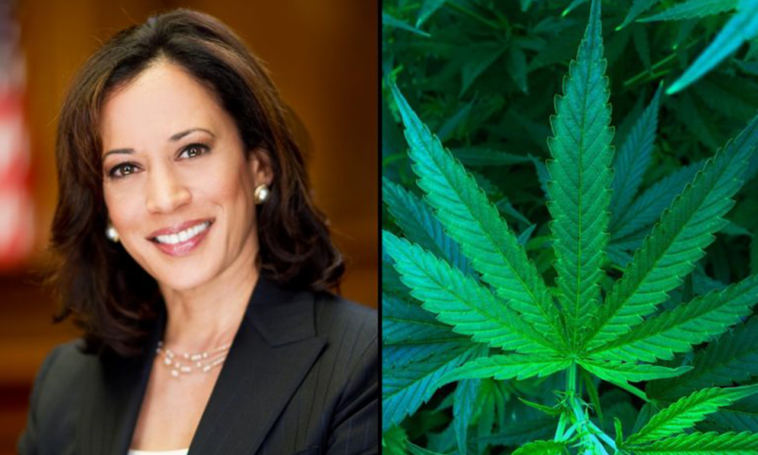Vice President Kamala Harris has highlighted the administration’s move to pardon individuals for federal marijuana possession offenses as a demonstration of delivering for Americans, particularly young and Black voters, whom President Joe Biden sees as crucial for his reelection.
Harris emphasized the importance of reaching the Black youth vote, citing cannabis clemency as a measure uniquely appealing to this demographic.
In an interview with Gray DC in South Carolina before the state’s primary election, Harris praised the action taken to pardon tens of thousands of people for simple marijuana possession under federal law. She asserted that no one should go to jail for smoking weed, signaling a commitment to criminal justice reform and equity.
“Another issue [is] what we have done to pardon tens of thousands of people for simple marijuana possession under the federal law—because, frankly, nobody should have to go to jail for smoking weed,” Harris said.
While Harris mentioned “tens of thousands” being pardoned, the Justice Department estimates that around 13,000 individuals have received relief under President Biden’s clemency proclamations in October 2022 and December 2023.
Advocates have raised concerns about inflated rhetoric surrounding the pardons, as they involve formal forgiveness and not the release of individuals actively incarcerated for simple possession.
Despite the administration’s focus on marijuana pardons, there are still individuals in federal prison for other non-violent marijuana offenses. Advocates have urged the Biden administration to fulfill its cannabis campaign pledge to decriminalize marijuana and take more comprehensive action.
The White House, in a fact sheet on efforts to advance racial justice and equity, highlighted the marijuana pardons and a separate scheduling review initiated by Biden. The fact sheet emphasizes steps taken to address the disproportionate impact of marijuana enforcement on Black and brown communities.
The Justice Department is seeking White House approval to update its data collection process related to marijuana pardon certificates, reflecting the administration’s commitment to transparency. Eligible individuals don’t need to apply for a certificate, as the relief is automatic, but the updated applications allow those seeking formal documentation to do so.
While both Biden and Harris have previously supported marijuana reform, the extent of actions taken so far includes the pardons and a directive for federal agencies to review cannabis scheduling. The U.S. Department of Health and Human Services has recommended moving marijuana from Schedule I to Schedule III of the Controlled Substances Act, awaiting a final decision from the Drug Enforcement Administration.
Biden’s repeated emphasis on the marijuana pardons and scheduling review suggests an awareness of the political popularity of marijuana reform.
A recent poll indicates that knowledge of the rescheduling review resulted in an 11-point net increase in voters’ impression of the president, including a notable favorability swing among critical young voters aged 18-25, crucial for Biden’s reelection prospects. As the administration navigates cannabis policy, the potential impact on public perception and electoral dynamics remains a key aspect to watch.



